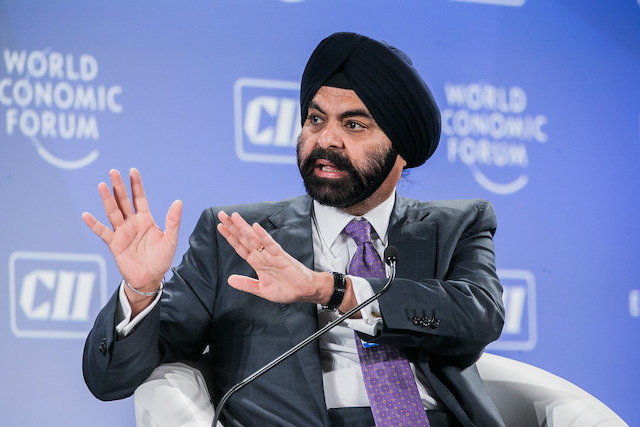- 02.03.2023
- IFIs
- Array
On 23 February, the US announced its nomination of Ajay Banga as president of the World Bank, just a week after the much-criticised David Malpass expressed his intention to step down before his term ends in 2024. This move by the Biden administration is a sorely missed opportunity to nominate a candidate with a proven history of championing genuine climate action. Instead, the US nominated another bank executive whose business portfolio includes investments in fossil fuels.
Ajay Banga sits as Chairman of the Board in Exor N.V., a Dutch holding company. Exor has existing investments with Welltec, a company that provides technological solutions for the repair and construction of oil and gas wells, as well as Carbon Capture and Storage (CCS) projects, a known false solution used by the fossil fuel industry to justify its continued operations. Exor also has investments in Cameco, one of the largest providers of Uranium fuel needed for nuclear power plants. Banga has also been a Director of Temasek since 2021, a company that has several links to fossil fuel investments such as in Keppel Corporation which is exposed to oil and gas infrastructure, Pavilion Energy which is involved in LNG trading, Sembcorp which operates fossil gas power plants in Singapore, Myanmar, China, and the UK, and SP group which provides electricity and gas transmission and distribution services in Singapore.
There is also widespread concern over Banga’s background in the private rather than public sector. Many question whether his history at global multinationals such as Citibank, Nestle, KFC and Mastercard will prepare him for the huge challenges of poverty and inequality. The World Bank Group’s approach to ‘Maximising Finance for Development’ prioritises de-risking investments to attract private finance, pushing costs onto governments and citizens. President Biden has touted Banga’s nomination saying he has critical experience “mobilizing public-private resources to tackle the most urgent challenges of our time,” but too often this can result in using public money to guarantee corporate profits at the expense of development goals and human rights.
The appointment of a Wall Street business leader and fossil fuel executive threatens to further entrench an extractive development model that promotes profit over people and planet. Recourse regrets the nomination of Banga and reiterates the need to ditch the ‘gentleman’s agreement’ in favour of a transparent, open and merit-based selection process. Instead of perpetuating the same line of business leaders and fossil fuel champions to lead the WB, this is an opportunity to nominate a proven climate and development leader who can finally bring an end to fossil fuel financing and catalyse the potential of public finance in supporting the transition to renewable energy economies.

